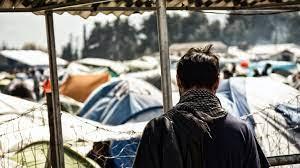There are many pressing humanitarian crises around the world, affecting millions of people who are in need of urgent assistance. Here are some of the most significant crises and the ways in which they are being addressed:
Syrian refugee crisis: The Syrian civil war has resulted in the displacement of millions of people, many of whom have sought refuge in neighboring countries such as Turkey, Lebanon, and Jordan. The crisis is being addressed through humanitarian aid, including food, shelter, and medical assistance, as well as efforts to support the host communities that are struggling to accommodate the large numbers of refugees.
Yemeni civil war: The ongoing conflict in Yemen has resulted in widespread displacement, food insecurity, and a cholera outbreak. The crisis is being addressed through humanitarian aid, including food, water, and medical assistance, as well as efforts to negotiate a political settlement to end the conflict.

Rohingya refugee crisis: The persecution of the Rohingya Muslim minority in Myanmar has led to the displacement of hundreds of thousands of people, many of whom have sought refuge in neighboring Bangladesh. The crisis is being addressed through humanitarian aid, including food, shelter, and medical assistance, as well as efforts to hold the Myanmar government accountable for its actions.
Venezuelan migrant crisis: The economic and political crisis in Venezuela has led to the displacement of millions of people, many of whom have sought refuge in neighboring countries such as Colombia, Brazil, and Ecuador. The crisis is being addressed through humanitarian aid, including food, shelter, and medical assistance, as well as efforts to support the host communities that are struggling to accommodate the large numbers of migrants.
Climate change-related disasters: Climate change-related disasters such as hurricanes, floods, and droughts are increasing in frequency and severity, affecting millions of people around the world. The crises are being addressed through disaster response and preparedness efforts, as well as efforts to mitigate the impacts of climate change through policies and investments in renewable energy and other climate solutions.
These humanitarian crises are complex and require a coordinated response from governments, humanitarian organizations, and other stakeholders. While humanitarian aid is crucial in the short term, longer-term solutions are needed to address the root causes of these crises, such as conflict, persecution, and climate change. It is important for the international community to work together to support affected communities, provide assistance to those in need, and address the underlying issues that are contributing to these crises.